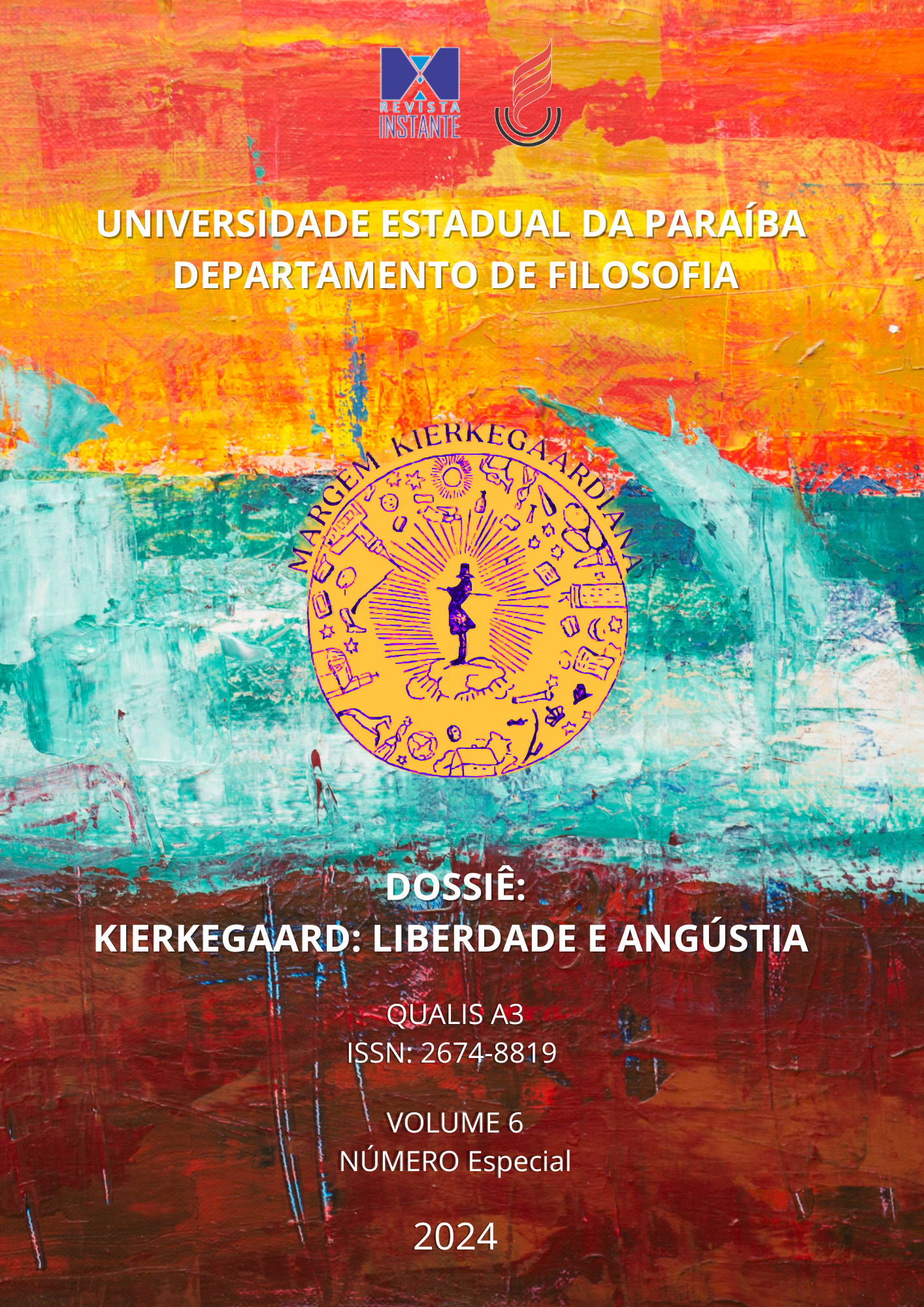ANGUISH AND FREEDOM IN "THE THIRD MARGIN OF THE RIVER"
Keywords:
Guimarães Rosa. Existential Psychology. Sören Kierkegaard. Singularity. Clinical Psychology.Abstract
To explore a perspective that stands apart from the hegemonic trend that apprehends existence objectively, we delve into the theme of anguish as understood by Kierkegaard. To elucidate the meaning, we attribute to the "margin," we employ the metaphorical imagery found in Guimarães Rosa's short story titled "The Third Bank of the River." Through philosophical reflections and literary description, our aim is to establish an approach within psychological clinical practice where anguish permeates the very foundation of this discipline. By analyzing the works of the philosopher and the literary figure, we strive to pave a path in clinical psychology that moves beyond abstract concepts to connect with the essence of life. We emphasize the significance of decision-making as the rupture occurring within the atmosphere of anguish, where something erupts as freedom. This involves interpreting anguish as the reality of freedom—a possibility for possibility, as defined by Kierkegaard and appropriated by psychological clinical practice from a phenomenological-existential perspective. The apprehension of anguish in psychological clinical practice relates to the experience sought by scholars of existential clinical understanding through studies rooted in Kierkegaard's conception. The clinical psychologist, embracing the understanding that anguish, as an affective tone, opens the existing being to a direct relationship with freedom as a possibility for possibility. When this moment - this opportune moment - occurs, the potential for appropriation in the path of individualization bursts forth.
References
BAPTISTA, L.A. Cidade dos sábios. São Paulo: Summus, 1999.
BARROS, M. Livro sobre nada. Rio de Janeiro: Alfaguara, 2016.
BRANDÃO, J. Mitologia grega. Petrópolis: Vozes, 1995.
CAEIRO, Alberto. Poesia completa de Alberto Caeiro. Rio de Janeiro, Brasil: Companhia das Letras, 2006.
FEIJOO, A.M. A clínica psicológica: “Sei que é difícil, mas eu vou falar assim mesmo”. In. Poesia e prosa em diálogo com a clínica psicológica. Rio de Janeiro: Edições Ifen, 2017.
FOGEL, G. Da solidão perfeita. Rio de Janeiro, RJ: Mauad, 1998.
FREUD, S. Totem e tabu. Rio de Janeiro: Imago, 2006.
HEIDEGGER, M. Zollikoner seminare. Frankfult am Main: Klosterrmann, 1987.
__________. Essais et conférences . Paris: Gallimard, 1958.
__________. Serénité. In. Questions III et IV. Paris: Gallimard, 1959.
KIERKEGAARD, S. Ou bien...ou bien. Paris: Editions Gallimard, 1943.
__________.O conceito de angústia. São Paulo: Hemus, 1968.
__________. Mi punto de vista. Madrid: Aguilar, 1988
__________. Adquirir sua alma na paciência. Lisboa: Assírio e Alvim, 2007
__________. As obras do amor: algumas considerações cristãs em forma de discursos. Bragança paulista: Editora universitária São Francisco.; Petrópolis: Vozes, 2005.
LISPECTOR, C. Palavras apenas fisicamente. In. Todas as crônicas. Rio de Janeiro: Rocco, 2018.
PESSOA, F. Poemas. Rio de Janeiro: Nova Fronteira, 2006.
ROSA, G. Aletria e hermenêutica. In: Primeiras estórias, 1969.
__________. A terceira margem do rio. In. Primeiras estórias. Rio de Janeiro: Nova Fronteira, 2001a.
__________. Nós, os temulentos. In: Terceiras estórias. Rio de Janeiro: Nova Fronteira, 2001b.
TEIXEIRA, N. Kierkegaard e as ciências naturais do século XX. Dissertatio 54, pp. 3-31, 2021.
__________. O que um filósofo da existência ainda tem a dizer sobre a consciência? Kierkegaard e o problema da Bevidsthed / por Natalia Mendes Teixeira. 304f. (Tese de Doutorado). Universidade do Vale do Rio dos Rio dos Sinos, Programa de Pós-Graduação em Filosofia, São Leopoldo, RS, 2022a.
__________. A psicologia experimentante de Kierkegaard como resposta. Griot: Revista de Filosofia, Amargosa - BA, v.22, n.1, pp. 144-156, fevereiro, 2022b.










